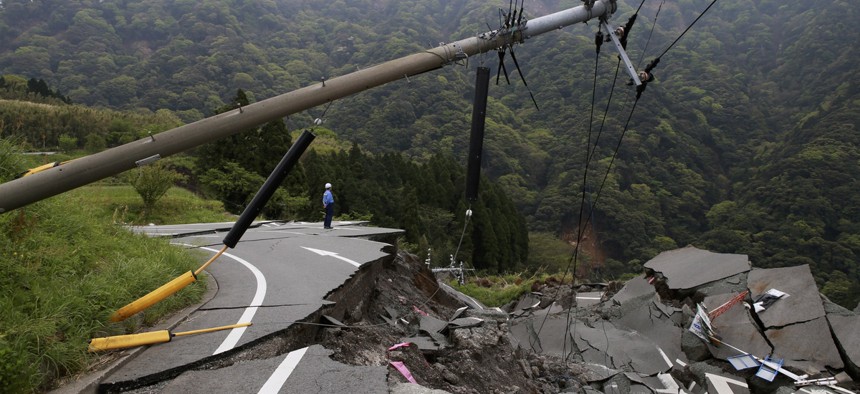Connecting state and local government leaders
The app will offer crisis navigation warnings and provide detailed visual information about hurricanes, tornadoes, and earthquakes.
When disaster strikes, we’ve come to rely on our phones. We scroll through Twitter for the latest update on a hurricane or flood, and mark ourselves safe from wildfires or tornadoes on Facebook.
Now Google is adding a disaster-navigation tool to Google Maps. Launching later this summer, a new feature on Google Maps will route users away from areas that are affected by extreme weather events. It will allow you to see confirmed road closures in the affected area, as well as suspected closures (based on crowdsourced user responses). Maps users will also be able to share their live location and other details of the event with friends and family members.
The idea is to integrate real-time (or near-real-time) information into an app that millions of people already use frequently.
“What we heard from users is they want to be able to see the best and most reliable information in that map context,” Google Maps product manager Hannah Stulberg told USA Today.
There are visual updates to existing alerts coming, too. In the case of a hurricane, a notification card will pop up days in advance with a “forecast cone” showing the storm’s trajectory and a prediction of when it might hit your area. Likewise, an earthquake “shake app” will show the quake’s epicenter and magnitude. And in India—where the tech giant has been experimenting with AI to predict flooding—Google Maps will display forecasts of when the next flood will come and where the biggest flood risks are.
Google’s crisis-response efforts aren’t new. In 2012, the company launched Public Alerts, which surfaces emergency weather and public-safety alerts near you on Google Maps. And in 2017, it introduced SOS alerts, relevant emergency information that appears at the top of searches and inside Maps.
The new features join other private-sector responses to public communication failures during disasters. When Superstorm Sandy hit the Northeast in 2012, for example, federal and local government weren’t only slow to update the public—they couldn’t give them clear information on what exactly they were facing. Power outages and lack of cellphone reception caused communication “black holes.” (Google’s latest features do require an internet connection, according to a company representative.)
Since then, public agencies have used social media to improve their warning systems and communications, but problems remain, as survivors of last year’s deadly wildfires in California recounted to the L.A. Times. One woman said the cellphone warning she received from the state’s system advised her to evacuate, but didn’t give her essential information about the fire’s location. Critics have pointed to a lack of coordination and clear guidelines on how warnings are sent out, as well as “over-alerting”—when people in non-affected areas also get the warnings.
Earlier this year, California Governor Gavin Newsom pledged more than $100 million—on top of the $200 million approved in 2018—to fight wildfire. Part of that money will go toward developing better communication strategies and emergency-alert systems, with the goal of bringing “more consistency” to the whole process, according to the Associated Press.
That kind of investment is needed elsewhere, even as creative startups, tech giants, and collaborative organizations such as Open Street Map come up with their own (often effective) ways of helping people get through disasters—which will only become more common as the world gets warmer.
Linda Poon is a staff writer for CityLab.

NEXT STORY: New York Lawmakers Pass Stronger Tenant Protections



